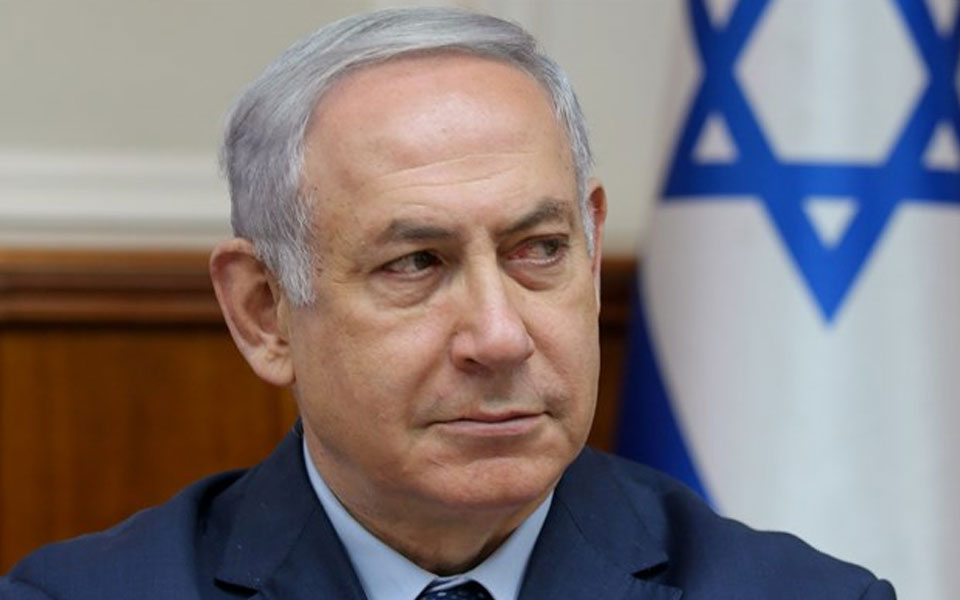Varna (Bulgaria) : Israeli Prime Minister Benjamin Netanyahu on Friday condemned the killing of Saudi journalist Jamal Khashoggi, in his first comments on the affair, but stressed the need for stability in Saudi Arabia.
"What happened in the Istanbul consulate was horrendous and it should be duly dealt with," Netanyahu told reporters during a visit to Bulgaria.
"Yet the same time I say it, it is very important for the stability of the world, for the region and for the world, that Saudi Arabia remain stable.
"I think that a way must be found to achieve both goals." Khashoggi, a critic of the Saudi regime, was murdered inside the kingdom's consulate in Istanbul last month, and Turkish officials are still searching for his remains.
After at first denying the murder, Saudi officials eventually admitted he had been killed in the consulate, blaming a "rogue operation" and arresting 18 people.
Riyadh's international standing has been damaged by the affair and the Turkish authorities have made it clear they will keep investigating the matter.
Israel and Saudi Arabia do not have diplomatic relations, but both nations have strong links with the United States -- and all three countries share a common enemy in Iran.
"The larger problem is Iran and we have to make sure that Iran does not continue the malign activities that it has been doing over the last few weeks in Europe," said Netanyahu.
Referring to what he said were two Iran-backed terrorist plots that Israel had helped foil in Europe, he added: "Blocking Iran is uttermost on our agenda for security, not merely for Israel but I believe for Europe and the world as well."
Israel considers Iran to be the main threat to its safety and has backed the United States in its withdrawal from the 2015 nuclear deal with Tehran. Netanyahu also called on other countries to support US sanctions against Tehran. New US sanctions go into effect on Monday.
He said sanctions so far had forced a marked decrease in the amounts Iran had devoted to "aggressive and terrorist" activities.
Let the Truth be known. If you read VB and like VB, please be a VB Supporter and Help us deliver the Truth to one and all.
Hyderabad (PTI): Telangana Chief Minister A Revanth Reddy met Union Home Minister Amit Shah in Delhi on Wednesday night and urged him to increase the sanctioned strength of IPS officers to the state in view of its growing administrative and security needs.
The two leaders also discussed the recent surrender of several senior Maoist leaders before the Telangana Police and other issues.
"During the meeting, the two leaders discussed the issue of Maoist surrenders and their rehabilitation. The chief minister informed Shah that significant improvements in policing have taken place in Telangana over the past two years," an official release here said.
Highlighting that 591 Maoists have laid down their arms and joined the mainstream of society during this period, the chief minister said the state government was providing them compensation and rehabilitation assistance as per the rules.
He requested the Union home minister to extend financial support from the central government for development works in the backward regions of the state.
Reddy also urged Shah to increase the sanctioned strength of IPS officers to the state from 83 to 105 in line with the state's growing administrative and security needs, the statement said.
The first cadre review after the formation of Telangana was conducted in 2016, while the next review, due in 2021, was delayed and finally carried out in 2025. Even then, only seven additional IPS officers were allocated to the state, the chief minister informed Shah and requested that the third cadre review be conducted in 2026 as per the schedule.
Reddy explained that Telangana, like the rest of the country, is facing several modern challenges, including cybercrime, drug trafficking, white-collar crimes, and other emerging security threats.
He highlighted the reorganisation of the Hyderabad, Cyberabad, and Malkajgiri Police Commissionerates, the proposed formation of the Future City Commissionerate and the rapidly growing population in Hyderabad to underline the increasing administrative requirements of the state.





